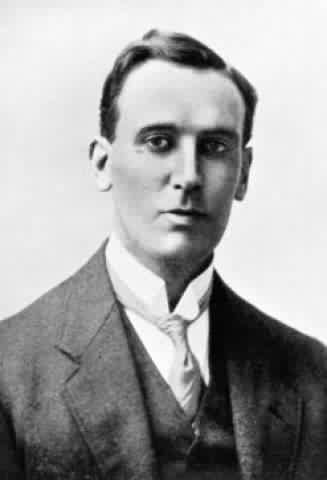|
|
|
 |
The name of the baritone Leicester Tunks will probably be remembered with pleasure by some older fans. According to Rollins and Witts' "Record of Productions", he first appeared with the Company in 1905, and he remained with them for twelve years. The one part which he played continuously during that period was Florian, which gave scope to his talent for light comedy acting. Captain Corcoran and Lord Mountararat were two other parts which he played for almost the whole of his career. In the other operas he began as Samuel, Colonel Calverley, Pish-Tush, the Lieutenant, and Luiz.
During Mrs. D'Oyly Carte's Repertory Season at the Savoy in 1908 he appeared in "H.M.S. Pinafore" and "The Mikado", playing Bill Bobstay and Pish-Tush until these parts were taken over by Leo Sheffield, and also at times Dick Deadeye and the Mikado. On returning to the touring company in 1908, he settled into the roles which, with one exception, he played for the rest of his career. These were four of the present "Mikado parts"-Pirate King, Mountararat, the Mikado, and Sergeant Meryll, and four of the lighter baritone parts - Captain Corcoran, Grosvenor, Florian, and Giuseppe.
He was a fairly light or medium baritone, whose voice especially suited "The Magnet and the Churn" and "Rising Early in the Morning". He was easy and polished in all he did. His height enabled him to wear Lord Mountararat's Garter robes with great distinction, and made the Pirate King's sweeping gesture over the Major-General's head at "We look over it" quite natural, which is not always the case when both are about the same height.
As Grosvenor, he did not adopt a Cockney accent at the end of the opera, simply a more lively tone than that of the idyllic poet. As Captain Corcoran, he addressed the serenade to the moon throughout and not to the audience. The Mikado's laugh was bloodcurdling, but shorter than that of later artists.
About 1914 or 1915, when Frederick Hobbs took over the role of Mountararat, Leicester Tunks changed to Strephon for a time, until Sydney Granville returned and resumed the part which he had made so much his own.
At the end of 1916 Leicester Tunks left the D'Oyly Carte Company to join the Forces.
| Artist Index | Main Index |